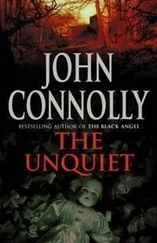Who had bravely driven it into the portal, causing it to collapse.
Sergeant Rowan took a few steps forward and examined the moving rock. More particularly, he examined the wheels of the rock, and then peered into the interior of the disguised car.
“Constable Peel, do you still have your notebook open?” he said.
“Yes, Sarge.”
“You know that page you’ve just filled with all of the charges against Mr. Nurd here?”
“Yes, Sarge. I’ve written them all down very neatly, in case the judge wants to read them for himself.”
“Tear it out and throw it away, there’s a good lad.”
“But-”
“No buts. Just do as I say.”
With considerable reluctance, Constable Peel did as he was told. He tore the page into little pieces and dropped them on the ground.
“Littering,” said a small, cheery voice from somewhere around his belly button. “That’s a fifty-quid fine.”
“Shut up,” said Constable Peel.
“It seems I may owe you an apology, sir,” said Sergeant Rowan.
“No, not really,” said Nurd. “I did all of the things that you said, or most of them anyway.”
“Well, I think you may have made up for them. Now, what’s this about Samuel Johnson?”
And Nurd did his best to explain how he had felt Samuel’s presence, and how he believed that it was Mrs. Abernathy who had been responsible for dragging Samuel and by extension the policemen, the dwarfs, and Dan, Dan the Ice-Cream Man to Hell.
“And what do you suggest we do about that?” asked Sergeant Rowan.
“We find Samuel, and then we try to discover the location of the gateway so we can get you all home,” said Nurd.
“You seem very sure that there is a gateway.”
“There has to be. Even here, certain laws apply. Wherever it is, it has to be close to Mrs. Abernathy. I do have one question for you, though.”
“And what’s that?” said Sergeant Rowan.
“What is that terrible music?”
“It’s ‘(How Much Is) That Doggie in the Window?’” said Constable Peel glumly.
“Woof-woof,” said Angry, mainly out of force of habit. (He was Pavlov’s Dwarf. 32)
“I told you,” said Dan. “I can’t turn it off if the engine is on, and I’m a bit worried about turning the engine off and leaving us stuck here.”
As he spoke Wormwood opened the door of the van, peered beneath the dashboard, and fiddled about a bit. Instantly, the music stopped.
“Thank you,” said Constable Peel. “Thank you, thank you, thank you. If you didn’t look like a rodent, smell funny, and have what I suspect may be a number of easily communicable diseases, I might even hug you.”
“Nicest thing anyone has ever said to me,” Wormwood replied. He sniffled, and wiped away a little tear.
“That is a relief,” said Sergeant Rowan. “Now, where’s Samuel?”
Nurd pointed to his left. “I think he’s over there somewhere.”
“Then over there somewhere is where we’re going. Lead on, sir.”
Nurd and Wormwood returned to their car while the policemen and the dwarfs climbed back into the ice-cream van with Dan.
“Hey, what was that song again?” said Dozy, followed quickly by the words “Ow!” and “Never mind” as Constable Peel made his disapproval of such questions felt.
Nurd started the ignition on the Aston Martin and pulled ahead of the van, which was soon rumbling along behind them.
Wormwood tapped Nurd on the arm.
“Look what I found in the van,” he said.
In his hand he held a bag of jelly beans.
“If you ever tell anyone I said this, I shall deny it,” said Nurd, “but, Wormwood, you’re a marvel…”
In Which We Learn That There Is Always Hope, as Long as One Chooses Not to Abandon It
SAMUEL’S FACE WORE A smile for the first time since he had arrived in that desolate place. He turned to the Blacksmith and said: “You were right! Nurd heard me. I know he heard me!”
But instead of congratulating him, the Blacksmith grabbed Samuel and Boswell and threw them behind a Russian T-34 tank that was lying on its side nearby, its tracks shredded and its innards exposed by a hole that had been ripped in its armor. For a moment Samuel thought that he had misjudged the Blacksmith and, like Old Ram, he was about to betray them, until the Blacksmith whispered to him to be quiet and stay still. Samuel saw shapes moving across the sky, their tattered wings beating, their keen eyes scouring the land below. Then the ground began to tremble, and Samuel heard the beating of hooves, and a voice said, “Greetings, Blacksmith.”
Samuel peered around the side of the tank, his hand around Boswell’s muzzle to prevent him from barking. Above the Blacksmith loomed a black horse, five times taller than the Blacksmith himself, with the wings of a bat and yellow eyes that glowed like molten gold set into its skull. Black blood dripped from its mouth where it was biting on its bridle, and its hooves struck sparks upon the stony ground. In its saddle sat a demon with two pale horns protruding from his skull, the horns, like those of some great bull, so long and heavy it seemed almost impossible that he should be able to hold his head upright upon his shoulders. His hair was dark and long, his skin very pale, and his eyes bright with a wit and intelligence that made the cruelty writ upon his features seem somehow more terrible. He wore armor of red and gold, and a red cloak that was clasped at his neck with a tusk of bone. The cloak billowed behind him even though there was no wind to carry it, so that it seemed to have a life of its own, to be a weapon in its own right, a shroud that could suffocate and consume. The rider’s saddle was heavy with weapons: a saber, a spiked mace, and an array of knives with ornate, twisted blades.
“My Lord Abigor,” said the Blacksmith. “I was not expecting such illustrious company.”
Abigor pulled back on the horse’s reins, causing it to rear up before the Blacksmith, its monstrous front hooves barely inches from his head, but the man did not flinch. Abigor, seeing that his effort to frighten the Blacksmith had proved fruitless, turned the horse and let its hooves once again touch the ground.
“If I did not know better, I might have said that I detected a tone of mockery in your voice,” said Abigor.
“I would not dare, my lord.”
“Oh, but you would, Blacksmith. Your skill in forging my weapons only buys you a little tolerance. Be careful how you spend it.”
The Blacksmith hung his head in shame. “You made me forge them, on pain of greater torment. I would not have done so otherwise.”
“I do recall your misguided attempt at defiance. If I remember correctly, it died when I threatened to sever your toes.”
The Blacksmith’s jaw tightened, and Samuel felt his anger. Despite Abigor’s fearsome aspect, the Blacksmith was barely restraining himself from an attack. Abigor released his hold on the reins and spread his arms wide, as though daring an assault, but the Blacksmith did not take the bait, and Abigor once again resumed his hold upon the horse.
“I find that pain focuses the mind wonderfully,” continued Abigor. “Do you need help in that department again, Blacksmith? I would be happy to oblige if I decide that you are withholding information from me.”
The Blacksmith raised his head. “I don’t know what you’re talking about, my lord.”
“I seek a boy. He is a trespasser. He can’t be allowed to wander freely, and I have reason to believe that he is in this area.”
“I have seen no boy. I have had no visitors since last your lordship came to me.”
“I detect no sense of sorrow that so long has passed without contact between us.”
“I will not lie to you, my lord. You come to me only when you need weapons, and it pains me to forge such implements. It is why I ended up here, and I wish now that I had not been so eager to please men of power in my past life.”
Читать дальше












